What Happens When You Can’t Afford Breast Cancer Reconstruction?
Disease took their breasts. Mounting bills may keep it that way.
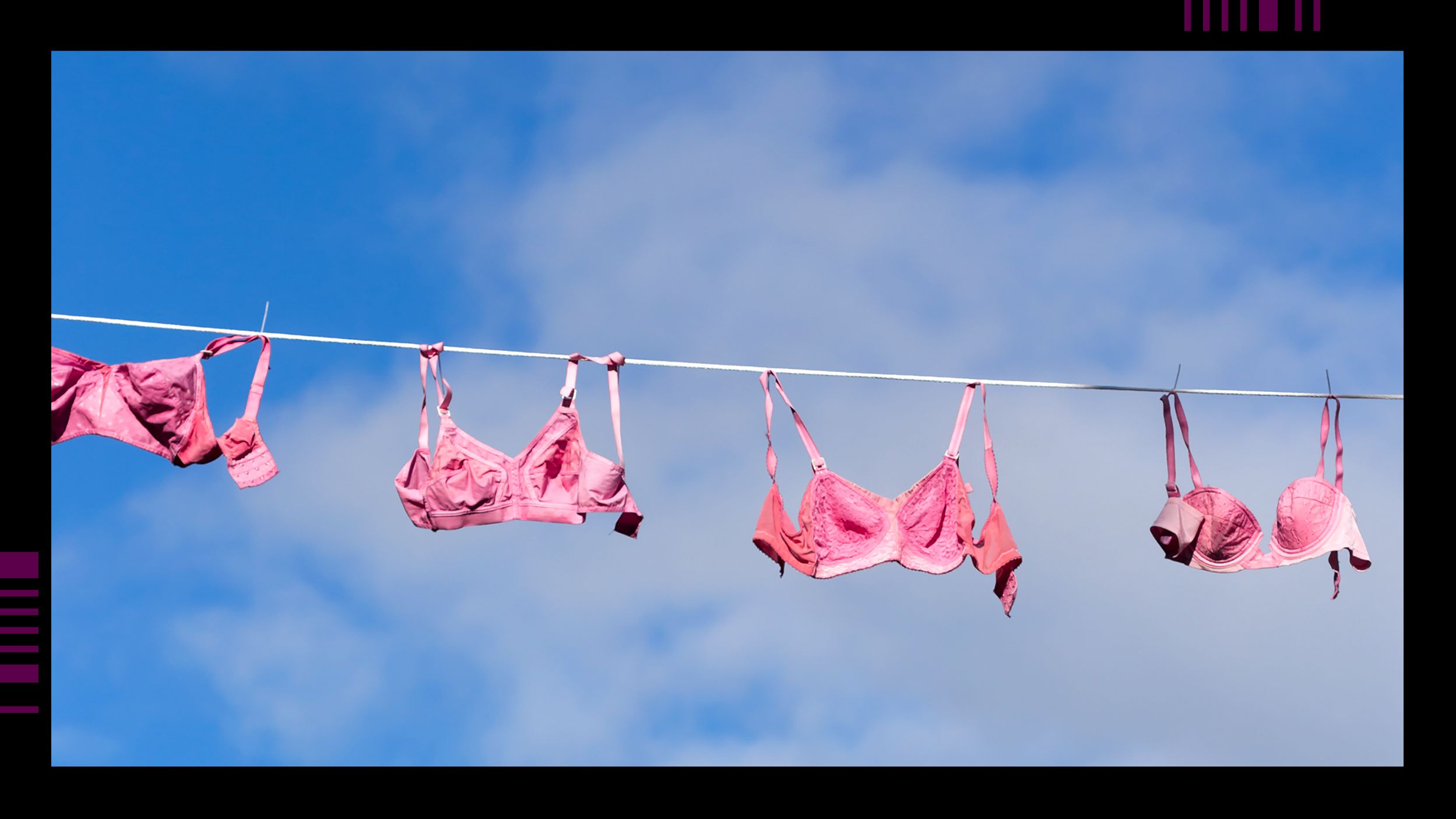
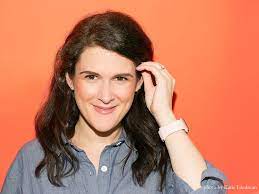
Dee Mautz has breast cancer. She also has health insurance. But after her diagnosis, it didn’t help much: When a bill arrived for $100,000 and only $276 was paid by her policy, she found out her insurer considered chemotherapy an “experimental treatment.” And that was only one part of her treatment plan.
A 2016 study found the average cost of breast cancer treatment ranged between $71,909 and $182,655, depending on stage at diagnosis—and insurance only covered between $60,637 and $134,682 of those expenses. That leaves tens of thousands of dollars in “noncancer treatments” for patients to handle themselves.
Among those kinds of expenses? Reconstructive surgery, which rebuilds the look and shape of the breast after a mastectomy, using either implants or the patient’s own body tissues. “Reconstruction is an integral part of treatment—it helps a patient feel whole again,” says Rod Rohrich, M.D., a founding member of the Dallas Plastic Surgery Institute and co-founder of the Alliance in Reconstructive Surgery (AiRS), a nonprofit that helps fund women’s reconstruction. But despite its importance as part of a holistic cancer treatment plan, reconstruction can be incredibly difficult to afford. “Even though there are two federal laws—one that says you should be told about options for breast reconstruction and one requiring funding from your insurance company—there are many, many loopholes,” explains Dr. Rohrich. “Some insurers will cover little to nothing, or only one stage, or only a specific dollar amount. It’s very variable,” he says.
And when a single breast implant can cost as much as $10,000, the financial burden on a patient can quickly get out of control, making some women feel as though the surgery isn’t a viable option for them. “The decision to get reconstruction should be made by the patient—not by her doctor, and certainly not by her finances,” says Dr. Rohrich.
But what about when money does dictate the decision? Marie Claire spoke to three women in the throes of trying to rebuild their lives—and breasts—after cancer.

I’ve had ovarian cancer twice before, so I’m hypervigilant about my well woman exams. Last year there were some concerns. I had a biopsy done on both breasts, and the results came back as stage zero, then stage one. We caught it early, so that was somewhat of a relief. But there was an immediate feeling that because of my history we needed to be pretty aggressive with this.
We started radiation, which causes a tightening of the breast and burns similar to a bad chemical burn, and it goes into the tissue and causes hardening, forming lumps. Basically, it really deforms your breasts, even with just one round—and I did 30 rounds in only six weeks.
Stay In The Know
Get exclusive access to fashion and beauty trends, hot-off-the-press celebrity news, and more.

Erin Helfert
I don’t want to be reminded of any kind of violation of my body—whether it’s cancer or something else. I feel a sense of defeat every time I take off my shirt. I don’t feel comfortable being topless with my partner. I never considered not getting reconstruction. When I look in the mirror, I need to see the whole vision I have of myself.
I didn’t tell my employer about my diagnosis at first. Going to work helped me; it felt like I was not allowing the cancer to defeat me. I’m a United Nations representative for an international NGO, overseeing programming for girls in emergencies. I love what I do, but I’ve never been paid so low in my life. We just got a new insurance plan with an $8,000 deductible. After you meet it, depending on the procedure, they reimburse up to 30 percent of the cost. Affording my treatment was going to be very difficult.

I started looking around for options to help pay for parts of it online and found the AiRS Foundation. Even though my income is low, I’m above the poverty line, and they don’t usually fund women in my situation. I feel very fortunate for their help, because if I hadn’t had support in paying down that deductible there’s no way I would have been able to afford reconstructive surgery. Even paying $1,000 of that deductible is a lot for me. Too much, honestly.
I think some women think I’ll get reconstruction done, and then it will be over with, but it’s turned into a multi-part process for me. First, they put in really small implants. And then I have to go back in and get larger implants that fit my body better. I have to do fat grafting, which might sound great on a vain level, but fat reabsorbs into the body, so you usually have to have it redone four to six times to have it really stick. When I think of having to have liposuction and then the fat injection six times, I think: Is that going to be be covered? Is my insurance going to run out? Will this go into next year and I’ll have another deductible to meet?
It’s harrowing to think that this is just never going be done.
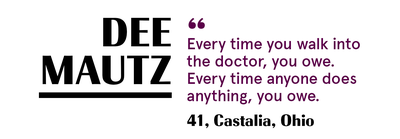
In December of last year, I found a small nodule near my left armpit. I didn’t think it was a big deal—I get them around my monthly. After Christmas, I thought it looked larger. I was with my mom, and she felt it and said, “You said it was a size of a pea. This is bigger than that.”
So in January I went to my primary doctor. They sent me to get a biopsy. Four days later they told me I had metaplastic breast cancer, a rare form that is very aggressive. By the time I saw my oncologist, in mid-January, that pea was already the size of a plum. At that point they gave me a course of treatment: surgery to remove the mass and chemo because my lymph nodes were also affected.
I had stayed calm until that point, but then I got hysterical, because just as I was learning all this, claims started coming back from my insurance company saying “denied, denied, denied.” I never get sick, so when we were choosing an insurance policy I picked the most basic package. But I did see that specialty care was covered 100 percent. I called them and said, “I don’t understand, why are these claims being denied? I got a bill for $100,000, and $276 was all that was covered.” That’s what made me the most hysterical: the bills.
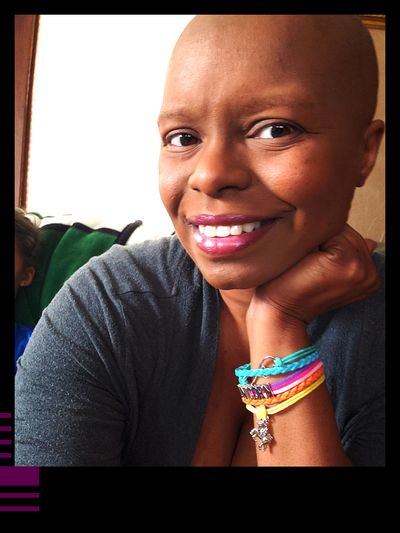
Dee Mautz'
I’m a very organized person. I asked my insurer to send me a list of what would and would not be covered. The person I spoke with had the nerve to tell me that chemotherapy is considered an experimental treatment, and when they get a claim for it, it’s up to their discretion whether they’ll cover it. They couldn’t even tell me which treatments were covered.
My oncologist and my surgeon said, “We cannot wait on your insurance. The fact that it grew so much so quickly—we don’t have time to wait.” They said, “Next year, go to the next tier up for your coverage.” I was so frustrated. That’s not helpful to me right now!
We made the choice to go ahead. I had four rounds of the chemo they call “the red devil,” one of the strongest forms. I had this huge Afro, but by the second treatment my hair was falling out. I lost 11 pounds in a month—and I thought I was doing a good job eating! I had leg pain, mouth sores, no energy.
The bills just came in like there’s no tomorrow. Every time you walk into the doctor, you owe. Every time anyone does anything, you owe. Every Thursday I’d go in for my chemo, and it was $16,000. My husband makes $42,000 a year. I have five kids—two are still at home, one has autism. People at the insurance company and the hospital asked if I could get a job or if my husband could work a second one. Medicaid said I make $4,000 a year too much to use one of their plans, but if we had another kid, I’d qualify. Are you serious? And if we went up to the next tier with our insurance, that would increase our contribution by $100 a week. Four hundred dollars a month. When your bills are three times more than what you make in a year, what are you supposed to do?
I finished chemo in July, and then I went in for a double mastectomy. I had to have a double, because I’m BRCA-2 positive. The saving grace had been that up until this point, the hospital’s stance was as long as you’re paying a little bit every month, there’s nothing else they can ask for. But when they made out my plan for surgery, they said because our insurance won’t cover everything, we had to pay for certain things up front or they wouldn’t do it at all. I just lost it.
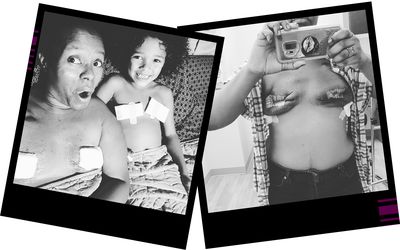
Dee and her child, left. Dee’s scars, right.
I’m the kind of person where, if I were to break down, everyone around me would, too. I think the only time someone has seen me cry was after the double mastectomy. We have our own financial burden as part of everyday life, and now I added all this other burden to our family. It sucks. My husband has never said anything, but it’s just sucky.
I’m not usually one to ask for help, but I have a 6-year-old and an 8-year-old at home, and this disease has a five-to-seven year lifespan. This was too important not to ask. We had set up a GoFundMe when I was first diagnosed, and we put $4,000 towards the bills, but if I had known that we were going to need to pay for some things up front, I never would have spent the money. I’ve questioned everything: Am I doing the right thing? If I don’t do reconstruction, it’s less we have to pay. But later on, am I gonna regret it?
A few great friends chipped in for surgery fees, and I started the process. Nobody in their right mind says they’ll get reconstruction “just because.” The expanders are so painful. It’s not a boob job!
When my kids went back to school this fall, one of my girlfriends bought their backpacks. The money I would have spent on backpacks went toward bills. I have an amazing support system, and I’m fortunate for that. We’re just taking it day by day. Even the littlest things help.
You can donate to Dee’s GoFundMe here.
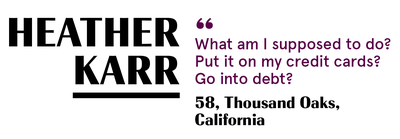
My sister had triple negative breast cancer and died in her early 40s, so I always felt like a ticking time bomb. I was diagnosed in the middle of December 2017, and my first thought was, Cut these fuckers off my chest. I’ve seen what this disease can do to people. I wanted them gone.
I’m a small business owner: If I don’t work, I don’t make money. I had considered getting disability insurance on top of the basic healthcare I had, but it’s really hard to get disability insurance as a massage therapist since there’s risk of injury in my job. It was going to cost me $400 a month. I thought I would be better off if I just saved that money and put it aside.
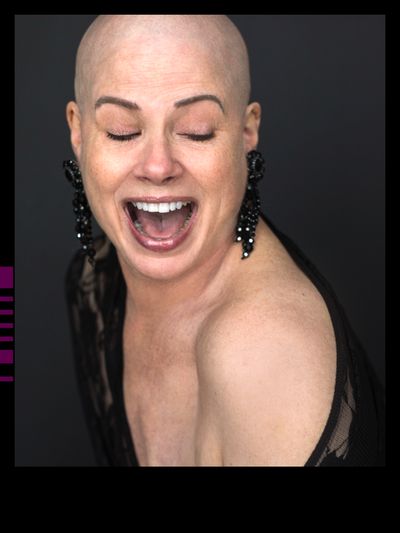
Heather Karr
I do very well, I work hard, and I can afford medical care, but I missed work to get my mastectomy and I couldn’t work as much during my chemo treatments—my job is physically demanding and I was weak. I took a financial hit. To have reconstruction, I won’t be able to work for five weeks. What am I supposed to do? Put it on my credit cards? Go into debt?
I recently got engaged, too. I know my fiancé wouldn’t care if I didn’t get the surgery. After my mastectomy, he always looked at me like I was beautiful. I started going bald. I had no hair, no eyelashes, no boobs—I felt like an absolute alien—and he’d still grab me and give me this look. I thought: Can you even see me? Who is this guy? He would be supportive no matter what I chose. But I don’t want to be flat. I think I look better with boobs. I like boobs! Really, I just want to look like me again.
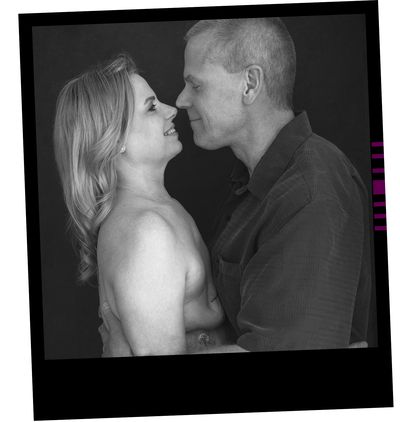
Heather and her fiancé
When I was going through chemo, a friend set up a GoFundMe without my permission. I was so embarrassed, but thank God for her. I realized people just want to help. Most people’s instinct is to stop by and say hi, but when you’re throwing up and don’t sleep and have hot flashes, you don’t want people coming over. People want to bring you food, but when you’re going through chemo there’s very little you can eat. Do I want some macaroni and cheese or do I want $50? I can’t eat the macaroni and cheese, but I sure could use that $50.
Money takes stress off a person, and stress is the biggest thing you have as a cancer patient. When people donated, it took a huge weight off me knowing that if I had to miss a day of work because of chemo, it wasn’t going to kill me financially. So I set up another one for my reconstruction. I only shared it once, though. I really hate asking for help.
Even if you have a good job, cancer is just financially horrible. I really don’t know what the solution is.
You can donate to Heather’s GoFundMe here.
RELATED STORY
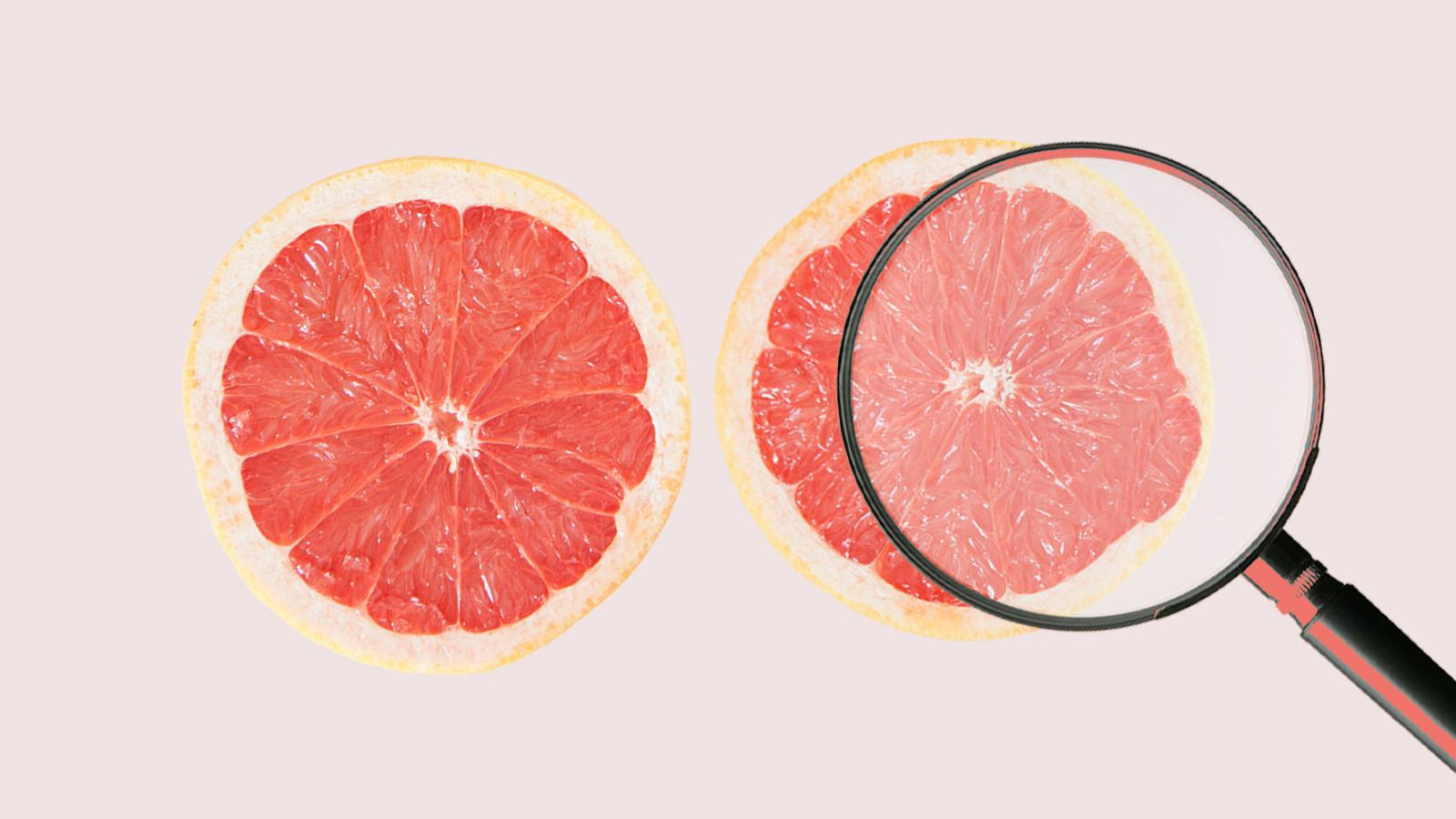
Sara Gaynes Levy is a writer and editor in New York City covering health, wellness, and women's issues. Her work has appeared in _The Wall Street Journal, The Guardian, New York Magazine and many others.
-
 Princess Anne's Unexpected Suggestion About Mike Tindall's Nose
Princess Anne's Unexpected Suggestion About Mike Tindall's Nose"Princess Anne asked me if I'd have the surgery."
By Amy Mackelden Published
-
 Queen Elizabeth's "Disapproving" Royal Wedding Comment
Queen Elizabeth's "Disapproving" Royal Wedding CommentShe reportedly had lots of nice things to say, too.
By Amy Mackelden Published
-
 Palace Employees "Tried" to Get King Charles to "Slow Down"
Palace Employees "Tried" to Get King Charles to "Slow Down""Now he wants to do more and more and more. That's the problem."
By Amy Mackelden Published
-
 Senator Klobuchar: "Early Detection Saves Lives. It Saved Mine"
Senator Klobuchar: "Early Detection Saves Lives. It Saved Mine"Senator and breast cancer survivor Amy Klobuchar is encouraging women not to put off preventative care any longer.
By Senator Amy Klobuchar Published
-
 I'm an Egg Donor. Why Was It So Difficult for Me to Tell People That?
I'm an Egg Donor. Why Was It So Difficult for Me to Tell People That?Much like abortion, surrogacy, and IVF, becoming an egg donor was a reproductive choice that felt unfit for society’s standards of womanhood.
By Lauryn Chamberlain Published
-
 The 20 Best Probiotics to Keep Your Gut in Check
The 20 Best Probiotics to Keep Your Gut in CheckGut health = wealth.
By Julia Marzovilla Published
-
 Simone Biles Is Out of the Team Final at the Tokyo Olympics
Simone Biles Is Out of the Team Final at the Tokyo OlympicsShe withdrew from the event due to a medical issue, according to USA Gymnastics.
By Rachel Epstein Published
-
 The Truth About Thigh Gaps
The Truth About Thigh GapsWe're going to need you to stop right there.
By Kenny Thapoung Published
-
 The High Price of Living With Chronic Pain
The High Price of Living With Chronic PainThree women open up about how their conditions impact their bodies—and their wallets.
By Alice Oglethorpe Published
-
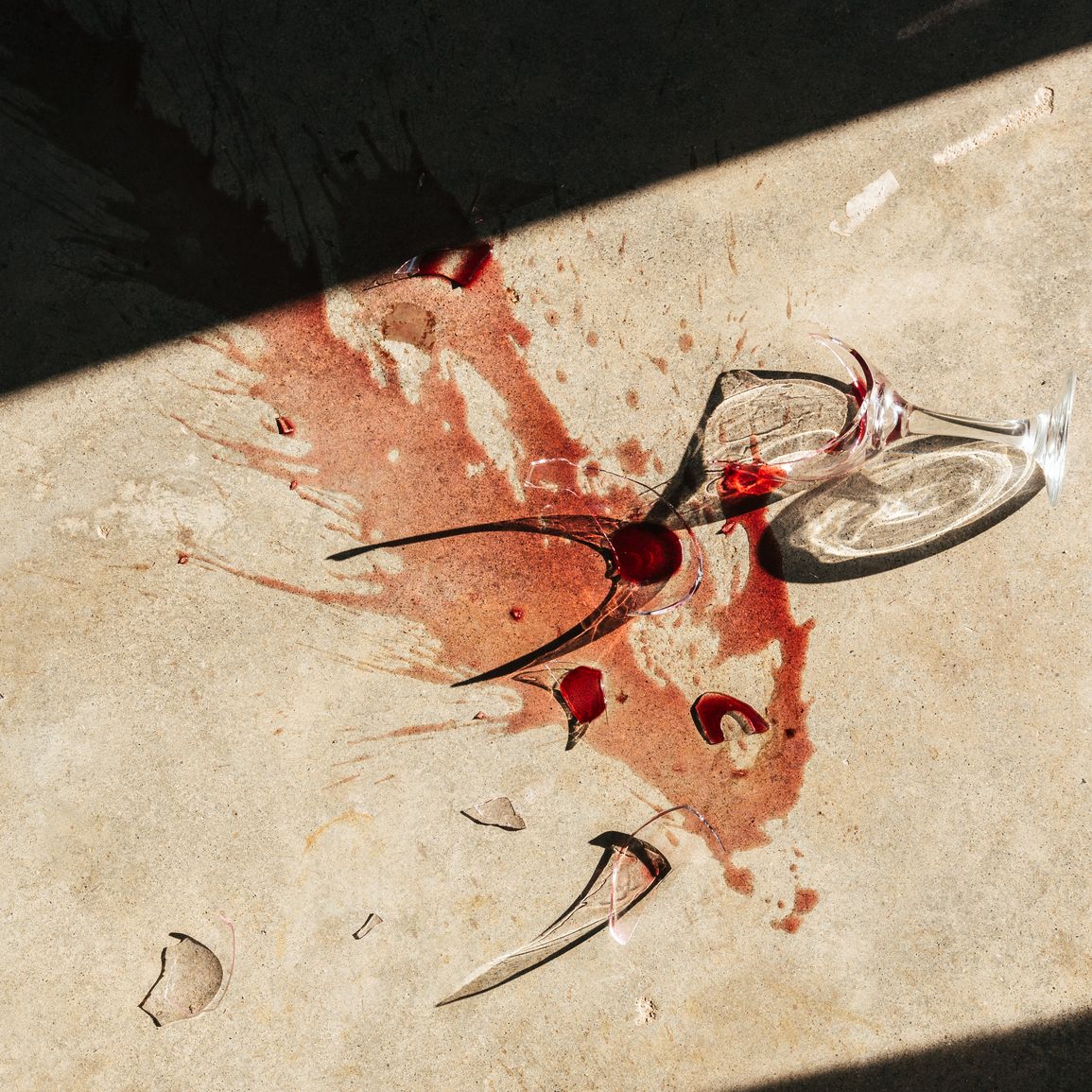 I Used to Imagine Murdering the Men I Dated
I Used to Imagine Murdering the Men I DatedFalling in love helped me finally figure out why.
By Jessica Amento Published
-
 60 Workout Apps for Women Who Want Results (Without a Gym Membership)
60 Workout Apps for Women Who Want Results (Without a Gym Membership)Buying Guide Easy fitness plans you can follow without fear of judgment.
By Bianca Rodriguez Published